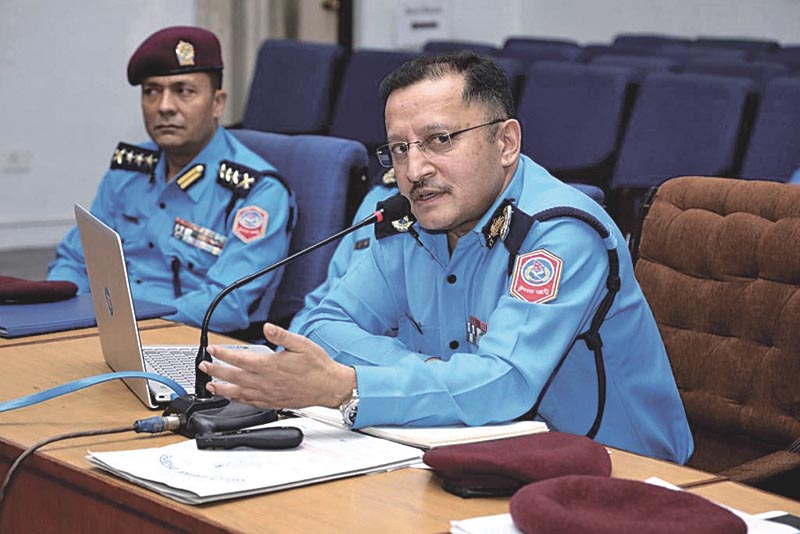Police make public list of top 10 crimes
Kathmandu, August 27
Nepal Police has made public a list of top 10 crimes in the country during the fiscal 2016-17.
Public offences are at number one with 10,054 cases reported and dealt with, followed by suicides by hanging at 3,754 (second), accidental homicides at 3,622 (third), drugs at 2,467 (fourth), vehicular homicides at 2,051 (fifth), suicides by consuming poison at 1,234 (sixth), thefts at 1,182 (seventh), rapes at 1,137 (eighth), murders at 1,015 (ninth) and attempts to murder at 633 (tenth).
According to statistics compiled by Nepal Police, the country recorded 31,462 incidents of crimes in the fiscal 2015-16 compared to 28,070 in previous fiscal, an annual increase of 10.15 per cent.
It indicates an increasing trend in overall crime rates.
Cases of public offence increased to 10,054 in 2016-17 from 8,690 in the previous fiscal, rapes to 1,137 from 1,089, accidental homicides to 3,622 from 3,159, drugs to 2,467 from 1,976, murders to 1,015 from 579, vehicular homicides to 2,051 from 2,006, suicides by hanging from 3,382 to 3,754, suicides by consuming poison to 1,234 from 1,183, and attempts to murder to 633 from 664.
However, cases of financial crime, fraud, forgery, burglary, kidnapping, possession of explosive devices and cybercrime have decreased.
Cases of crime against women and children such as trafficking, polygamy, child marriage, rape, attempted rape, domestic violence, and accusation of practicing ‘witchcraft’ continues unabated in the country, despite enforcement of stringent laws against them.
The report also claims that police maintain zero tolerance against any form of violence against women and children.
The report also and that they managed to nab all perpetrators of rapes and rape attempts.
Police also urged people immediately to report to the law enforcement agency if they are subjected to physical or mental torture by anyone.
Crime rates are much higher in big cities than in small cities and rural areas because chances of the perpetrators being recognised and arrested in a large mobile population is lower.
Public-police partnership, pro-active policing, awareness-raising activities and evidence-based crime investigation have been put on high priority to ensure the security of lives and property in the country, said police.






